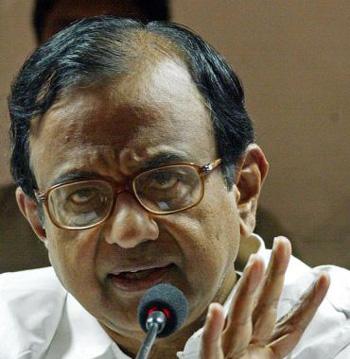
There are some rather inconvenient questions related to the 2G spectrum scam that the former finance minister may have to answer in the coming days, says M R Venkatesh.
As the trial begins in the special court on the 2G spectrum scam, there is a riveting side story -- perhaps more interesting than trial itself.
The special court last week directed the Central Bureau of Investigation to provide documents related to 'equity dilution' by telecom operators that were allotted telecom licenses in 2008 to Janata Party chief Subramanian Swamy.
Swamy, it may be recalled, had petitioned the special court to provide him with the correspondences between the then telecommunications minister A Raja and the then finance minister P Chidambaram. Naturally, this has set the Yamuna on fire.
What is so extraordinary about this equity dilution? Why is the nation riveted to the contents of the file? Why has this issue increased the political temperature in the already surcharged atmosphere, especially days before the Parliament is supposed to meet for the Winter Session?
. . .

To understand, one must revisit the sequence leading to the alleged scam. It may be recalled that Swan Telecom was allotted a license for a mere Rs 1,500 crore (Rs 15 billion). Swan subsequently sold 45 per cent of equity to Etisalat, a foreign company for a whopping amount of Rs 4,200 crore (Rs 42 billion), merely months after it was allotted spectrum.
Similarly, companies promoted by the Unitech Group purchased licenses for approximately Rs 1,600 crore (Rs 16 billion) per license. Almost instantly, they sold 60 per cent of their stake for Rs 6,200 crore (Rs 62 billion) to Telenor, another foreign company.
That implies the value of each company to be close to Rs 10,000 crore (Rs 100 billion)!
Significantly, these companies did not have any assets other then licenses which they had acquired. Apparently, these sales at such elevated prices to foreign layers imply that the licenses were originally sold by the government at throwaway prices.
. . .
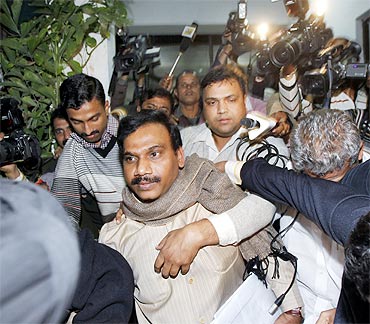
But the value of the license is half the issue: the dilution is the crux of the issue -- the conclusive evidence of the scam. And this requires some elaboration.
According to the arguments put forward by the accused, the existing promoters have not sold their shares to these foreign players. Rather, it is the companies in which they owned shares (and also licenses) sold fresh shares to these foreign players.
In the process, the promoter's holding was at best diluted, not sold. Interestingly, while there was a three-year lock-in period for the sale of shares by the promoters, there was no stipulation on allowing 'strategic partners' and 'equity dilution' by existing promoters.
That, in turn, meant that Telenor and Etisalat had acquired licenses indirectly in October 2008.
. . .
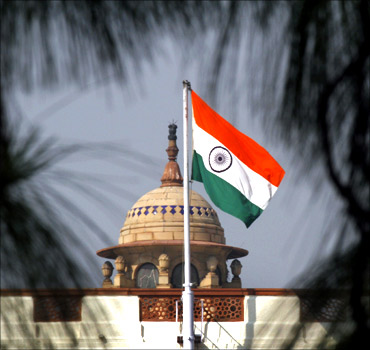
Importantly, the former telecom minister is on record stating that dilution of equities by the alleged beneficiaries of 2G spectrum scam to foreign firms was first cleared by the government and did not constitute any offence.
Assuming for a moment that the former telecom minister and by extension the former finance minister are right, then it brings us to the next logical question: in a country where a second-class berth allotted to you for a mere Rs 100 by Indian Railways cannot be transferred to another person, how can such licenses valued at several hundred crores (billions) of rupees be indirectly transferred?
Rs 500 crore of expenditure at Rs 8,400 crore
The counsel for the former telecom minister had reportedly stated in the open court that "the matter (about sale of equity by spectrum licensees) was discussed between the prime minister and the then finance minister."
According to him, "The then finance minister had himself told the prime minister that the dilution of equity was not sale and was completely allowed under corporate law."
. . .
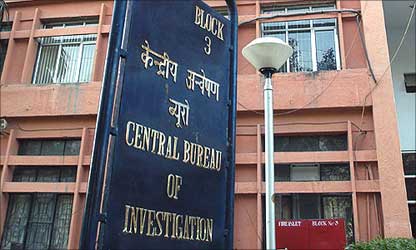
And that in turn has brought the then finance minister directly into the fire.
"The then finance minister( who is now home minister) had said in front of the prime minister that dilution of shares does not amount to sale of 2G license as per the corporate law," and added to good effect, "Let the prime minister deny this." [Source: Several press reports]
Fascinatingly, these arguments about dilution of shares were made even as early as in November 2008, days after Swan and Unitech entered into the ill-fated agreement.
More interestingly, both these companies wrote to the ministry of telecommunications on November 4, 2008 after several press reports raised inconvenient questions on these agreements.
. . .

The crux of the arguments put forth by these two companies at that time (as it is even to this date) was that the foreign players were 'not investing into an entity where the only value is the spectrum that it holds'.
This meant that substantial amount of work had gone about between January 2008 (when the licenses were allotted) and November 2008, when this communication was sent.
Unitech, for instance, claimed that it set about building a team of Indian telecom professionals to build the company, its network, its business processes, offices, distribution channels -- in short do everything for launching a successful telecom operation.
Simultaneously, it also claimed that it engaged a banker of international repute to identify a strategic partner which ultimately led to the agreement with Telenor.
. . .

For all these efforts, Unitech declared that as at September 30, 2008, its total expenditure on all these accounts aggregated to approximately Rs 2,100 crore (Rs 21 billion).
In short, according to Unitech, Telenor, its strategic partner was partnering with it at a stage "where about 6 months of effort and Rs 2,100 crore (Rs 21 billion) of expenses have already been expended."
Put simply, Telenor was investing into a company that was already up and running and not merely an entity that had acquired licenses.
But the letter also concedes that the Rs 2,100 crore (Rs 12 billion) of expenditure includes the license fee of approximately Rs 1,600 crore (Rs 16 billion)! In short, till September, Rs 500 crore (Rs 5 billion) were spent on setting up the business and Rs 1,600 crore were spent on licenses.
. . .
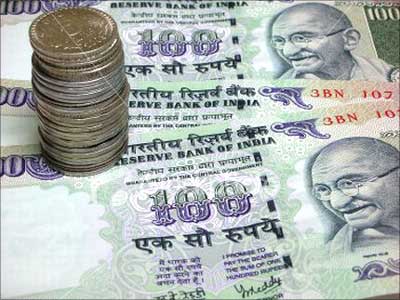
Remember that the company had not yet commenced commercial operations. In effect, Unitech wants us to swallow their logic that Rs 500 crore of expenditure along with the licenses was to be valued at Rs 10,000 crore (Rs 100 billion).
Simultaneously, they also want to us believe that the licenses were not resold at higher prices! That means the licenses allotted to them in January 2008 at approximately Rs 1,600 crore (Rs 16 billion) was even as at September 30, 2008 valued at RS 1,600 crore.
That in turn implies hat out of Rs 10,000 crore (Rs 100 billion) valuation of the company, the spectrum valuation remains a mere Rs 1,600 crore.
The balance Rs 8,400 crore (Rs 84 billion) represented the value of expenditure (representing salaries, travel and other sundry expenses to put the operations in place) aggregating to about Rs 500 crore!
. . .

Will an investor value expenditure 16-17 times its original value? Remember all these expenditure are nothing special -- every company incurs some start up expenditure to put in place its team, arranges logistics and possibly attempts to identify potential partners.
Every finance professional will concede that the aggregate cost of several expenditures incurred in a planned manner is much more than the each one of them incurred independently. But 16 times?
Well, that is stretching the issue too far. But fortunately for Unitech and Swan, it had a willing listener in the telecommunication ministry.
But what about the finance ministry?
Incidentally, the Unitech-Telenor deal was initially objected by the home ministry on security grounds, only to retract in 2009. The finance minister who maintained a stoic silence then blessed the deal as the Union home minister.
. . .

According to information available in public domain, in face of strong objections from the IB and RAW, the Foreign Investment Promotion Board had deferred the approval on this matter but the home ministry diluted all objections by placing a 'flimsy' clause.
Accordingly, Telenor's staff affiliated to its Pakistani arm would not be permitted to work in India! That in turn paved the way for approval by the CCEA in 2009.
It is pertinent to note that all these information was in the public domain for long. Surely, the correspondence between the then finance minister and the then telecommunications minister -- and to be provided by the CBI to Swamy -- will possibly provide more clues as to what was the opinion of the finance ministry, crucially its minister about the share valuation, unless there was no communication in the first place!
Was it simply a case of issue of fresh capital leading to equity dilution of promoters? Or was it a case of transferring the control of companies and by extension precious spectrum that it had obtained -- fair or foul to another by circumventing the law of the land?
. . .

Assuming that such companies (and not the promoters) were indeed the beneficiaries of the share dilution, was the then finance minister also tacitly approving the same? Either way, the revenue was lost. Possibly someone made money, but that is irrelevant.
Crucially, while all these were been played out in full public glare what was the then finance minister doing? Was the ministry party to all this by its tacit silence?
Or has the then finance minister provided the necessary approval after consultations with the prime minister? Inconvenient questions indeed that the former finance minister may have to answer in the coming days.
The author is a Chennai-based chartered accountant. He can be contacted at mrv@mrv.net.in